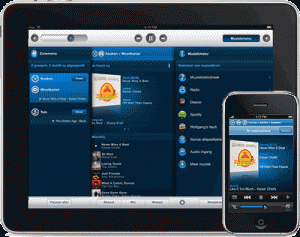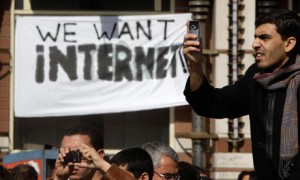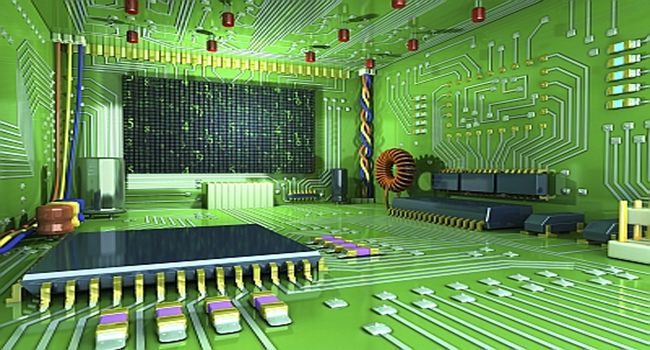Life Computing Part II – Cause & Effect: As Defined by the Apps that Follow Us
Recap: In my previous post (link ), I commented on the trending of large capital investments from private and government sectors flowing into building more intelligent hardware systems and software programs and some may be wondering how will this eventually affect me?
I think it is now safe to say that we have all seen or felt the dramatic effect that ubiquitous internet connectivity has had on society. The systems that make this possible started out as large private and government funded projects which have evolved into the cool tiny mobile technologies available to the masses today. These systems now connect us all in ways that only existed in science-fiction stories. One of the more subtle life changing technologies that will soon become common place is the trend of computing becoming more centralized rather than restricted to any one device. This is known as “Cloud Technology” which simply means that information is stored, shared and processed from a central location on the internet and accessed anywhere from multiple devices.
 Personally, the two cloud-based technologies that have changed my life are “Smart Home” & “Sonos with Spotify”. Smart Home Technology is the culmination of 50 yrs of technology evolution that allows you to completely wire your home and just about any device in it so that they can be controlled remotely from your phone. Forgot to turn off a light, unlock a door for your kids that lost their house key from your office, set the thermostat before you get home or feed your pet from your car while stuck in traffic the possibilities are endless. The only thing that is missing is Watson (IBM’s smart program that recognizes the context of human language). Now that we can manually control our homes the next obvious evolution of the Smart Home is software that will make your next home aware. Imagine the day when the considerations taken when purchasing a new home is no longer just the number of bedrooms, bathrooms and square footage but how smart it is. Prospective homeowners will be asking if the home comes with a personal assistant (Watson will likely be sold as a high end add-on Cloud-based service accessible from home or various mobile devices that follow you). We will soon be choosing our personal assistant’s intelligence like we would our cable channels by service levels. Will your home include a medical first aid library to assist in an emergency or will it come with a math library to help your kids with school work, these advances are on the technology horizon.
Personally, the two cloud-based technologies that have changed my life are “Smart Home” & “Sonos with Spotify”. Smart Home Technology is the culmination of 50 yrs of technology evolution that allows you to completely wire your home and just about any device in it so that they can be controlled remotely from your phone. Forgot to turn off a light, unlock a door for your kids that lost their house key from your office, set the thermostat before you get home or feed your pet from your car while stuck in traffic the possibilities are endless. The only thing that is missing is Watson (IBM’s smart program that recognizes the context of human language). Now that we can manually control our homes the next obvious evolution of the Smart Home is software that will make your next home aware. Imagine the day when the considerations taken when purchasing a new home is no longer just the number of bedrooms, bathrooms and square footage but how smart it is. Prospective homeowners will be asking if the home comes with a personal assistant (Watson will likely be sold as a high end add-on Cloud-based service accessible from home or various mobile devices that follow you). We will soon be choosing our personal assistant’s intelligence like we would our cable channels by service levels. Will your home include a medical first aid library to assist in an emergency or will it come with a math library to help your kids with school work, these advances are on the technology horizon.
The second life changing Cloud-based service that I mentioned above is actually two separate technology advances that when combined provides a very unique solution. Sonos is a hardware solution that allows you to  wirelessly access and control your music library throughout your home from your phone or a nifty control panel remote. The Sonos system eliminates the need to physically run wires to speakers throughout your home or placing a small portable sound system where you actually want your music. The system allows you to create zones in your home as well so you can stream different music in different parts of your house, because let’s face it as much as we love the people we share our homes with not everyone can appreciate “Led Zeppelin”! The second part of this solution is Spotify which is a cloud-based service that allows you to create a massive collection of music on the cloud that can also be downloaded and accessed locally when offline. The beauty of this is that we no longer need to physically store music and carry it with us. This means that you will never lose
wirelessly access and control your music library throughout your home from your phone or a nifty control panel remote. The Sonos system eliminates the need to physically run wires to speakers throughout your home or placing a small portable sound system where you actually want your music. The system allows you to create zones in your home as well so you can stream different music in different parts of your house, because let’s face it as much as we love the people we share our homes with not everyone can appreciate “Led Zeppelin”! The second part of this solution is Spotify which is a cloud-based service that allows you to create a massive collection of music on the cloud that can also be downloaded and accessed locally when offline. The beauty of this is that we no longer need to physically store music and carry it with us. This means that you will never lose your music or be forced to get a storage space because the wife doesn’t approve of a dedicated room for your 70’s record collection. And the cool factor of not having to crate around a music library just can’t be beat. Another mention to Ultraviolet, which is the sister service to Spotify but geared to video media allows you to build a massive movie library stored on the cloud and streamed to any device at home or on the go.
your music or be forced to get a storage space because the wife doesn’t approve of a dedicated room for your 70’s record collection. And the cool factor of not having to crate around a music library just can’t be beat. Another mention to Ultraviolet, which is the sister service to Spotify but geared to video media allows you to build a massive movie library stored on the cloud and streamed to any device at home or on the go.
With all of these wonderful advances in technology let’s stop and think about how this has and will change us as individuals. I know that before we had smart phones I memorized at least half of the phone numbers for my family, closest friends and kept a cheat sheet of contact info tucked away in my wallet. Before we all had Google, many of the people I knew didn’t own an encyclopedia set or a library card and would have been too lazy to actually visit their local library to research a topic that they had an interest in or heard about to inform themselves. Some would argue that technology has made us lazy and less intelligent, but I tend to hold the opinion that is the exact opposite. Although I consider myself to be too busy rather than lazy to memorize more than two phone numbers these days I know that I have learned and continue to learn a great deal by way of internet research. I believe that the accessibility of information these days has prompted people to read more and seek answers to questions that were more difficult to obtain in the past thereby making us more intelligent as an individual and as a collective. Information and sentiment travel much faster today than 50 years ago. The proliferation of social media applications coupled with the accessibility provided by mobile devices link people and ideas together more efficiently than ever before. I know that I would never personally frequent Twitter or Facebook if it weren’t so easily accessible from a mobile device.
The effects of mobile social media in society have been very well documented by powerful and significant events in recent history. The ability to spread an idea rapidly with very little effort was evident in President Obama’s Presidential Election Campaign of 2008 and in the recent shifts in power from 40 year Regimes’ to its subjects that they were meant to control in the Middle East. Massive uprising spurred by word of mouth and the sharing of  ideas converging until a critical mass triggered a tidal wave of descent that could not be contained without a significant loss of life typically seen in civil wars. Uncensored internet access and social media are the tools that enable relatively peaceful transitions of power in the political and social arena. Today access to the internet and more specifically “Free and uncensored internet access which equates to freedom of speech” has become the inalienable right of the new 21st Century Digital Generation seeking a free society. The unprecedented embrace of socialmedia as an enabler to give the masses a voice has made Facebook and Twitter the poster child of revolution.
ideas converging until a critical mass triggered a tidal wave of descent that could not be contained without a significant loss of life typically seen in civil wars. Uncensored internet access and social media are the tools that enable relatively peaceful transitions of power in the political and social arena. Today access to the internet and more specifically “Free and uncensored internet access which equates to freedom of speech” has become the inalienable right of the new 21st Century Digital Generation seeking a free society. The unprecedented embrace of socialmedia as an enabler to give the masses a voice has made Facebook and Twitter the poster child of revolution.  For the remaining closed nation-states that still remain in power now find themselves in a struggle to maintain control of their subjects. Free internet access is necessary to remain competitive in a globally connected economy, however completely free internet possesses great risk to nations that are not governed by the people and so strict censorship of internet information are enforced to this day. As technology evolves and becomes more engrained in our lives it will become more difficult to prevent the spread of information. Human beings are creatures of habit and inherently socially drawn to each other which creates the desire to share our ideas with one another.
For the remaining closed nation-states that still remain in power now find themselves in a struggle to maintain control of their subjects. Free internet access is necessary to remain competitive in a globally connected economy, however completely free internet possesses great risk to nations that are not governed by the people and so strict censorship of internet information are enforced to this day. As technology evolves and becomes more engrained in our lives it will become more difficult to prevent the spread of information. Human beings are creatures of habit and inherently socially drawn to each other which creates the desire to share our ideas with one another.
Contributor, designer & admin for JohnHart Gazette.



1 comments